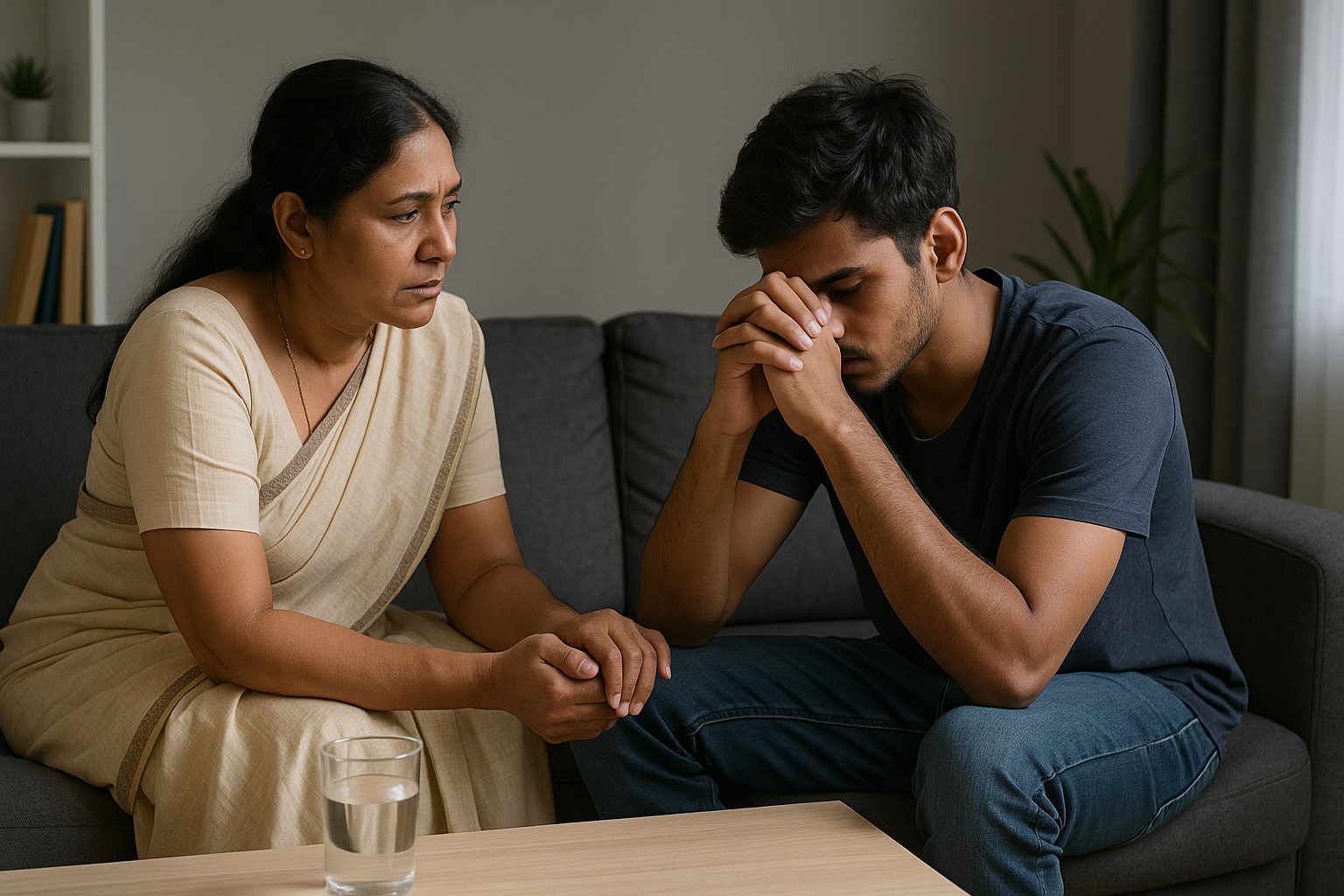
PANAJI
“My teenage son suddenly began behaving strangely, and I sensed something was not right. His eating and sleeping patterns changed. He started spending more time alone in his room, stopped going out with friends, and often seemed lost in thought. My inner voice told me something was wrong,” recalls a single mother from Goa, who gathered the courage to have an open talk with her son. At first, he would not share, but after much coaxing he admitted that he had started using weed.
“Shocked and upset, I managed to stay calm and offered to help. I explained that this was not good for him, and that it wasn’t too late to seek support. Breaking into tears, he agreed to see a psychiatrist to overcome the habit that he felt was changing his brain. It took more than six months for him to recover, but I still fear a relapse,” says the mother, now relieved that her son, a higher secondary school student, has managed to overcome his addiction with help from a de-addiction centre in North Goa.
Not all parents, however, are so alert and observant. Timely action can save young lives. A National Survey on Drug Use shows that millions of Indians, many under 25, are dependent on alcohol, cannabis, opioids, and synthetic drugs. The cost is enormous — loss of productivity, rising healthcare burden, broken families, wasted potential, and the loss of young lives.
Prevention, compassion & coordination
“We must recognise that substance abuse is not just an individual failing but a societal challenge. Every young life lost to drugs is a national tragedy. India, as a nation aspiring to progress, cannot afford to let its youth — its future backbone — be consumed by this menace. Prevention, compassion and coordinated action are urgently needed,” says Dr Amit Dias, senior faculty at the Department of Preventive and Social Medicine, Goa Medical College (GMC).
According to Dr Dias, drugs alter the brain’s chemistry, harming judgement, memory, and concentration. Over time, they destroy cognitive function, causing anxiety, depression, psychosis, and even permanent brain damage. “The effects on the body are equally severe — addiction weakens the immune system, damages the liver, lungs and heart, and can spread deadly infections like HIV and Hepatitis through unsafe practices. Young people lose their vitality, emotional balance, and social ties,” he warns.
Growing drug use not a sudden crisis
Commenting on the problem of student drug abuse in Goa, Peter Borges, former chairperson of the Goa State Commission for Protection of Child Rights (GSCPCR), says it is not a sudden crisis but one that has been building for decades. “I have been raising this concern repeatedly, but the response has remained limited to police raids and seizures. Raids make headlines but do not change realities. What is missing is serious investment in prevention and mental health,” says Borges.
Counsellors in educational institutions
Bhai Naik, chairman of the Hindu Mathagramastha Sabha, which runs Damodar High School and Damodar Higher Secondary School’s science stream in Margao, claims that all educational institutions in Goa have mental health counsellors to support students and prevent suicidal tendencies. “For schools and higher secondaries, counsellors are appointed by the Department of Education through the Goa Education Development Corporation (GEDC). They are guided and trained by a panel of psychiatrists, psychologists, and retired headmasters. For degree colleges, counsellors are appointed by the Department of Higher Education,” he says.
“Our institutions have two counsellors who are in regular touch with students, offering guidance and counselling. Every precaution is taken to protect students from harming themselves. Students do approach the counsellors or the head of the school when in need,” adds Naik.
Rehab pathways needed
Goa must revive school-level interventions. Confidential, stigma-free counselling and rehabilitation pathways should be available so that young people are not silenced by fear of punishment. Community involvement is vital — parents, panchayats and local bodies must all play a role in prevention. Schools need systematic policies, trained staff, and strong support from the Education Department.
On the enforcement side, police must target organised supply chains, while first-time users should be given treatment and rehabilitation options under Section 64A of the NDPS Act, rather than being criminalised. A balanced approach is key. But for this to work, Borges stresses, Goa must accept that its mental health system is weak and poorly planned, and urgently rebuild it as the backbone of prevention and rehabilitation.
Are rules and regulations in place?
Rules exist, but weak implementation is a major problem, notes a faculty member from South Goa. This leaves teachers and principals without guidance when cases arise. Schools may have counsellors, but how many actively engage with students is unclear. The Education Department should ensure regular monitoring, data collection, and reporting of suspicious activities. Without proper systems, rules remain only on paper, leaving students unprotected. Unless mental health and child safety are made priorities, drug abuse in campuses will continue.